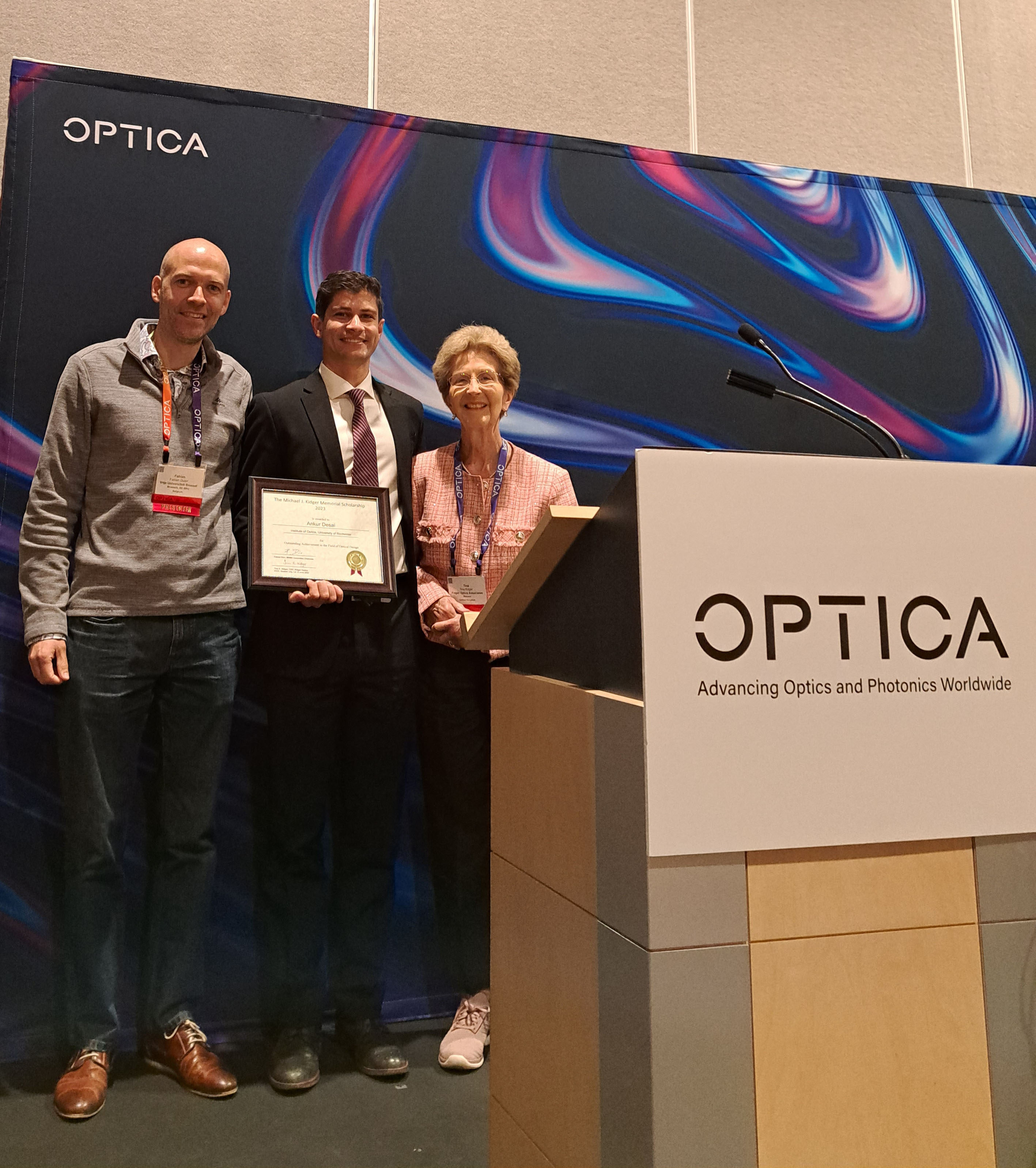|
ANKUR DESAI
2023 Kidger Scholarship Award
Winner, IODC 2023

ANKUR DESAI
receiving award from
Fabian Dürr, Award Committee Chair (left)
and Tina Kidger, Award Founder (right)
|
Upon entering graduate school, Ankur decided that he wanted to engage in groundbreaking, fundamental research on advanced optical design that would have significant impact. This led him to join Prof. Duncan
Moore’s lab at the University of Rochester. The Moore Research Group is internationally known for its involvement in the design, fabrication, and testing of gradient-index (GRIN) optics.
The project, which will be a significant portion of Ankur's Ph.D. thesis, is his work on multi-material gradient-index optics. A blend of three or more materials is described here by the term "Multi-Material." For the last several decades, GRIN optics have been modeled as a blend of only two materials. The Moore Research Group has been interested in multi-material GRIN for several years now but has not yet explored it to a publishable degree. In need of a thesis topic, Ankur began developing a suite of design and analysis tools for multi-material GRIN optics. This proved to be a very fruitful endeavor, as in only a few months, he has published two first author papers in Optics Express and submitted a U.S. patent application.
This project is at the forefront of optical design research. Not including Ankur's work, there exists less than a handful of published work relating to multi-material GRIN. These all stop at a blend of three materials. The true novelty of Ankur's work is extending multi-material GRIN to a blend of four or more materials, which has never previously been investigated. He has designed a single element with better than super-apochromatic performance, as its chromatic focal shift curve is quintic; this is the first instance of such a singlet, which Ankur's research group named a “hyperapochromat”.
Ankur has also begun work on freeform GRIN (F-GRIN) spectrometers, which can be a single element with planar surfaces. No other monolithic optic with planar surfaces exists which can simultaneously separate the spectrum and achromatically focus the light. The F-GRIN spectrometer work will continue in the coming years to include multi-element spectrometers, exploring F-GRIN’s ability to correct chromatic keystone and smile distortions, and F-GRIN Offner-type spectrometers.
It has been shown previously that a binary GRIN singlet can either be achromatized or athermalized. Current theory suggests that a ternary or quaternary GRIN can be both achromatized and athermalized in a single element – the impact of such an optic cannot be overstated. Ankur finds it comforting to know, that even though he cannot personally pursue every avenue of multi-material
GRIN's, future generations of Ph.D. students have ample scope to continue the work that he has started.
|

